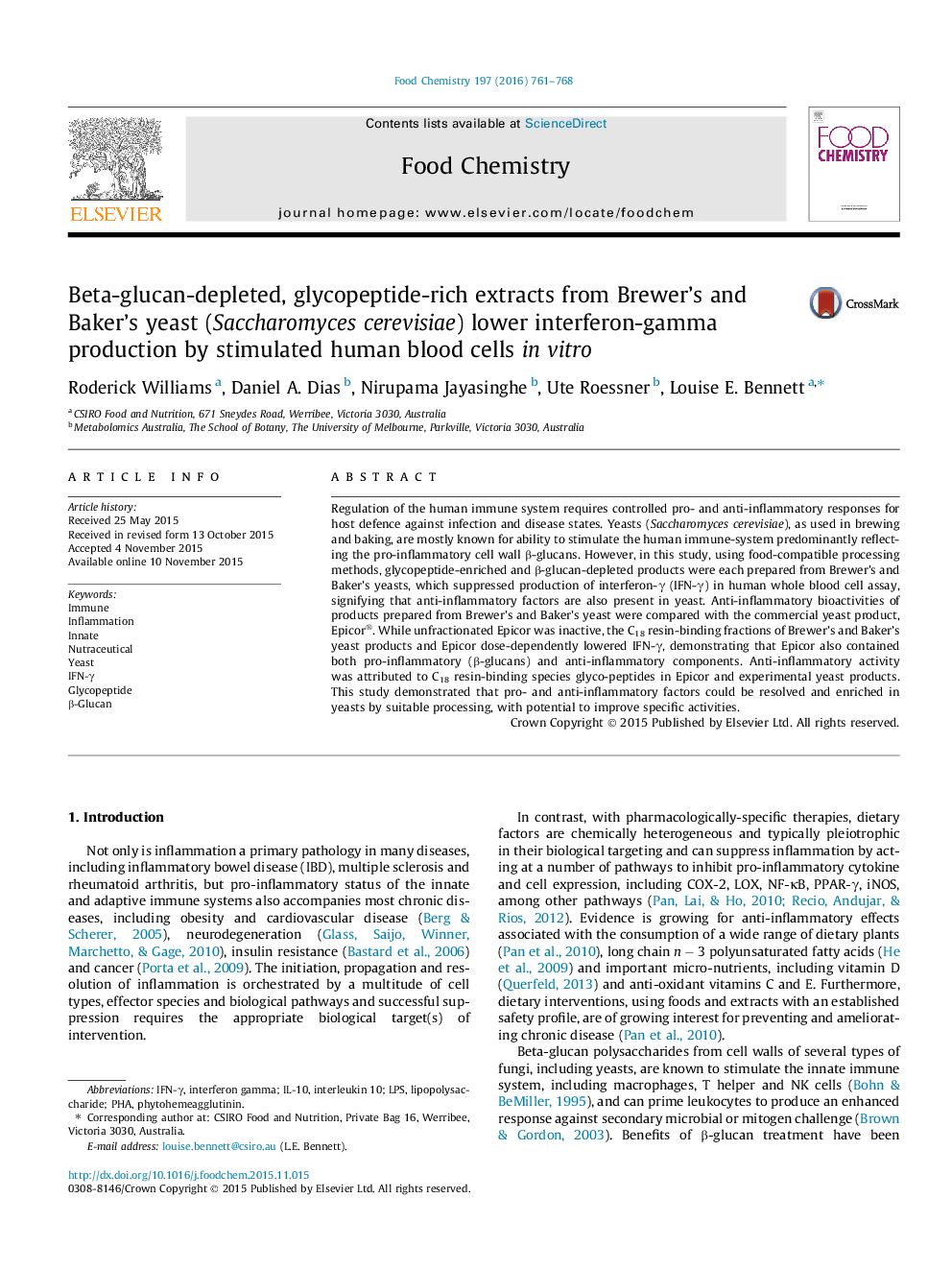| Article ID | Journal | Published Year | Pages | File Type |
|---|---|---|---|---|
| 1183514 | Food Chemistry | 2016 | 8 Pages |
•Yeasts are known for their immune-modulatory activity related to cell-wall β-glucans.•Glycopeptide-enriched, β-glucan-depleted products were prepared from dietary yeasts.•Fractionation resolved pro- and anti-inflammatory activity using a human blood cell assay.
Regulation of the human immune system requires controlled pro- and anti-inflammatory responses for host defence against infection and disease states. Yeasts (Saccharomyces cerevisiae), as used in brewing and baking, are mostly known for ability to stimulate the human immune-system predominantly reflecting the pro-inflammatory cell wall β-glucans. However, in this study, using food-compatible processing methods, glycopeptide-enriched and β-glucan-depleted products were each prepared from Brewer’s and Baker’s yeasts, which suppressed production of interferon-γ (IFN-γ) in human whole blood cell assay, signifying that anti-inflammatory factors are also present in yeast. Anti-inflammatory bioactivities of products prepared from Brewer’s and Baker’s yeast were compared with the commercial yeast product, Epicor®. While unfractionated Epicor was inactive, the C18 resin-binding fractions of Brewer’s and Baker’s yeast products and Epicor dose-dependently lowered IFN-γ, demonstrating that Epicor also contained both pro-inflammatory (β-glucans) and anti-inflammatory components. Anti-inflammatory activity was attributed to C18 resin-binding species glyco-peptides in Epicor and experimental yeast products. This study demonstrated that pro- and anti-inflammatory factors could be resolved and enriched in yeasts by suitable processing, with potential to improve specific activities.
